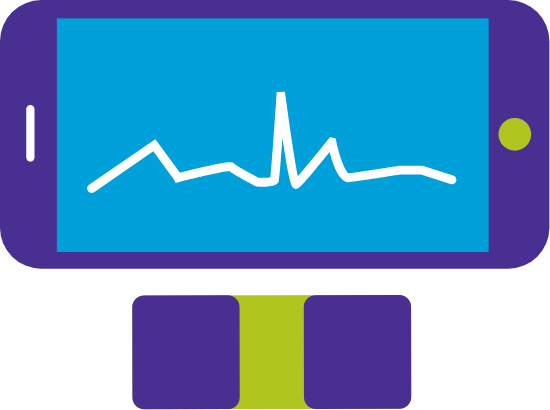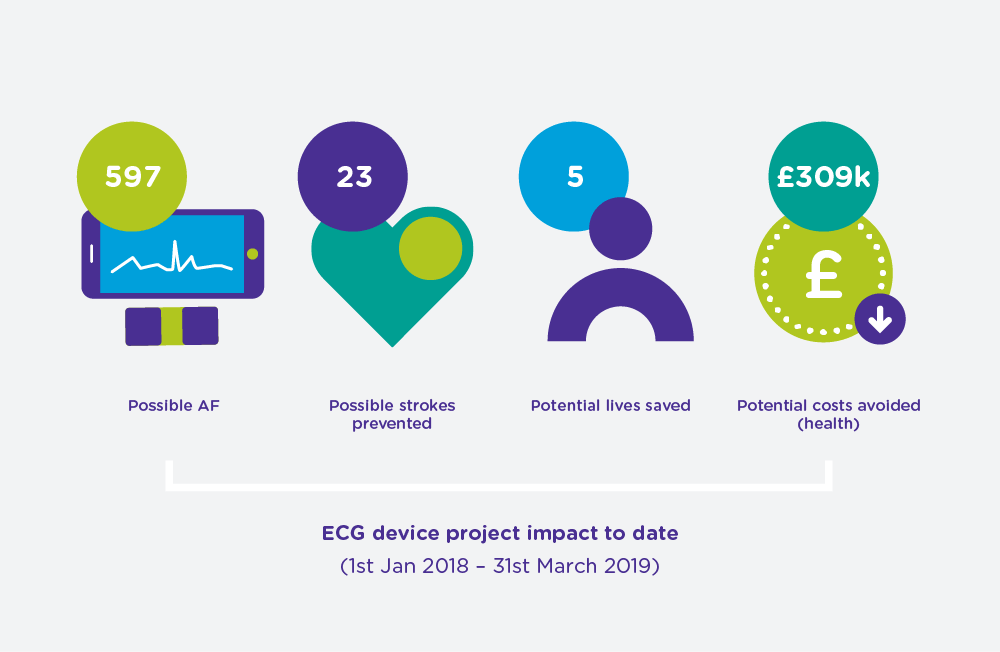Annual Report 2018/19
Our Stroke Prevention team have collaborated with other AHSNs around the country to provide access to the latest digital devices to help detect irregular heartbeats identifying people living with Atrial Fibrillation (AF). Around 400 mobile ECG devices were distributed in a variety of settings in south London, helping to identify more people with AF who can then be treated to reduce the risk of stroke.


Stroke is the fourth leading cause of death in the UK with approximately 100,000 people having a stroke each year. Atrial Fibrillation (AF) contributes to one in five strokes nationally, so by improving the detection and treatment of AF, we can improve the population’s health.
While two thirds of people with AF experience symptoms, one third do not, with many only becoming aware they have the condition when they have a stroke. AF is relatively easy to diagnose, and treatment with anticoagulants can reduce risk of stroke by two thirds. It is estimated that up to 500,000 people in the UK have undiagnosed AF.
The Mobile ECG project aimed to increase the number of local people being offered a pulse rhythm check using a mobile ECG device while visiting a range of healthcare and non-healthcare settings, as part of their day to day life. The devices were targeted at settings where, due to age or other co-morbidities, there was likely to be a higher incidence of AF. This included working with podiatrists, pharmacists, GP practices, community rehab teams, urgent care centres, acute mental health units, and mental health community teams across south London.


The mobile ECG devices available through the project included a credit card sized device that connects via a microphone of a compatible smart phone or tablet, and automated blood pressure machines with a built-in AF algorithm. Studies have found both types of devices to have improved sensitivity and specificity compared to pulse palpation. Read our comprehensive mobile ECG device review, to find out more information on these, and other devices.
Between 1 January 2018 and 31 March 2019, a total of 14,835 pulse rhythm checks were performed using the mobile ECG devices across south London, detecting 597 people with possible AF. People identified with possible AF are usually referred to their GP for further investigations and appropriate treatment.
In south London there has been an increase in the number of people with AF detected, and an increased number of those with AF receiving treatment in order to reduce risk of stroke.